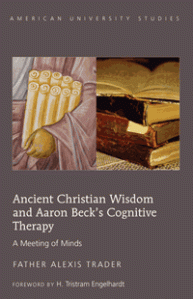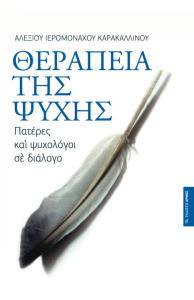About the Book
Ancient Christian Wisdom and Aaron Beck’s Cognitive Therapy details a colorful journey deep into two seemingly disparate worlds united by a common insight into the way our thinking influences our emotions, behaviors, and ultimately our lives. In this innovative study about mental and spiritual health, readers are not only provided with a thorough introduction to the elegant theory and practical techniques of cognitive therapy, they are also initiated into the perennial teachings of ascetics and monks in the Greek-speaking East and Latin-speaking West whose powerful writings not only anticipated many contemporary findings, but also suggest unexplored pathways and breathtaking vistas for human growth and development. This groundbreaking interdisciplinary volume in the art of pastoral counseling, patristic studies, and the interface between psychology and theology will be a coveted addition to the working libraries of pastors and psychologists alike. In addition, it is ideal as a textbook for seminary classes in pastoral theology and pastoral counseling, as well as for graduate courses in psychology dealing with the relationship between psychological models and religious worldviews.
From the Author
When I am asked the simplest of questions, “What is your book about?” Trying to supply a simple answer that does justice to the material is a rather difficult task. I think it would be more helpful to answer it somewhat indirectly by describing some of my concerns while writing it, which will in turn reveal some of the issues the work intends to address.
At its core, the book is really about being a Christian in this post-Christian world and the choices that this reality presents. In some ways, today’s situation is similar to that of believers during the first centuries of the early church. The two easiest options are to reject the culture entirely and try to survive in a self-enclosed cultural ghetto or to embrace the culture and merge with it. Both of those choices, however, have severe problems in terms of Christian outreach on the one hand and apostasy on the other. These subjects I discuss at length in chapter one entitled “Egyptian Gold in a Christian Hand: Models for Relating Cognitive Therapy and Orthodox Pastoral Theology.” Looking at important figures in the history of Christianity, I note that there is yet another option, which I refer to as discerning openness. It can be seen in the works of Clement of Alexandria, Basil the Great, and Maximus the Confessor among other luminaries of the first millennium. So, Ancient Christian Wisdom and Aaron Beck’s Cognitive Therapy is about applying an approach of discerning openness to what may be one of the most important forms of treatment for various psychological problems of our day.
Of course, I anticipate objections from audiences who feel very strongly about what inspires them in their lives. For example, some Christians might point out that Christian tradition in all its many manifestations often seems to be at odds with modern secularism as an ideology that leaves little room for the sacred in human life. They might have some very reasonable questions such as “Wouldn’t a therapy that grows out of such an ideology be dangerous for the believer? When dealing with the human soul is it theologically acceptable to apply the findings from a very different source, anthropologically speaking, to how a Christian can better think, feel, and live? Mightn’t the use of such a source have a harmful effect on the faith of the believer?” These questions are foremost in my mind and in each chapter I try to answer them on the basis of the teachings of early Christian writers.
Therapists and counselors in the secular world will also come to this work with their own questions and reservations. Starting with Freud, psychotherapy has been very suspicious of religion and, at the very least, influenced by the Freudian understanding of religion as a misguided projection of the primitive subconscious. Psychologists rightly decry the fact that many who appeared to be mentally ill were stigmatized as witches, tortured, and burned at the stake in the West during the Dark Ages and even during the more broad-minded Renaissance. Thus, the non-religious psychologist reading this work might have questions such as “What insight could possibly be derived from figures who take demon possession seriously? Wouldn’t mixing pre-Enlightenment thought with results derived from the rigorous application of the scientific method be one step backwards if not two?” I have also tried to be mindful of these questions out of respect for the time, the work, and the genuine human compassion that are also at the foundation of the development of the cognitive therapeutic attempt to relieve human suffering.
And so, the work begins and continues as a kind of balancing act. Yet, the aim is not to avoid offending certain people, but to be fair to all parties in the hope of recognizing the unified wisdom of God both through revelation and the use of the God-given reason of the human mind. Of course, it’s a tall order to respond to the best of our culture even in its secularity in a way that is somewhat analogous to how the Great Cappadocians responded to the best of ancient “secularism,” Plato and Aristotle. But I believe that it is an attempt that needs to be made and a conversation that should be had. Ancient Christian Wisdom seeks to begin that conversation, which is really important for so many people who suffer from psychological and spiritual problems.




I have just ordered this for a dear relative – but will read it myself too 🙂